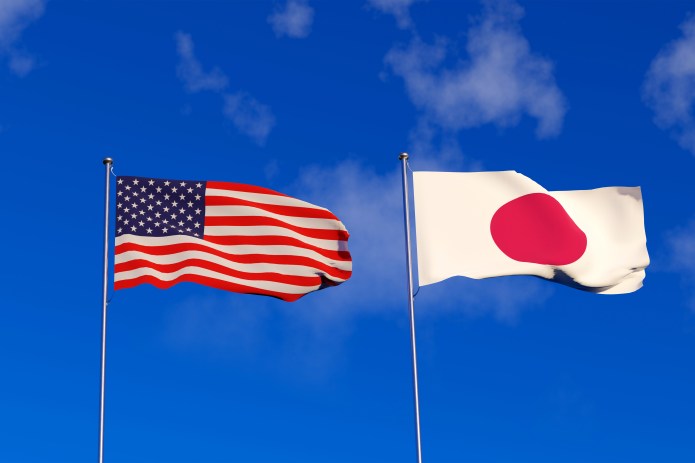
I just signed the largest trade deal in history; I think maybe the largest deal in history with Japan. US President Donald Trump
My summer holiday ended abruptly just five minutes after it began. As I parked my car at Tokyo Disney Sea this morning, NHK News reported that an aggregate tariff cut from 25% to 15% had been agreed with the US,1 including the automotive sector, a key sector for Japan. I paid ¥3,000 (US$20) for five minutes of parking, left my family there, and returned home to see the TOPIX spiking.
This is going to be a pivotal day for Japanese stocks as much market uncertainty appears to now have been removed. Despite earnings growth and further progress in corporate governance, the market had been moving in a tight range with two sell-offs over the past fifteen months. We believe with more certainty that it is time for investors to revisit Japan.
A boost for autos, consumption and financials…
The auto tariff was cut from 27.5% to 15%,2 a significant development since the US had insisted that tariffs on autos could not be negotiated alongside general goods. The auto sector represents around 8% of the TOPIX. However, considering the sector’s multiple (valuations) and the wider supply chain (capital expenditure and profits of materials and software/service companies), auto manufacturers and its supply chain account for about a fifth of the profits of Japanese-listed companies. The deal should provide a lot of clarity for the companies involved.
Elsewhere, it is also likely to be good news for domestic consumption and financials. Without economic growth, it was difficult to achieve a similar level of wage growth as we had seen over the past three years. Despite having the highest inflation among G7 economies, the Bank of Japan’s policy rate is set at 0.5% due to an uncertain economic outlook. Now the central bank is more likely to signal a rate hike in the second half of 2025, with higher probability of a rise in September or October. As of yesterday, the market consensus was for no hike in the second half.
And stronger economic growth
Before Trump’s Liberation Day announcement in April, I was expecting TOPIX net profit growth of 5-7% for financial year 2026 (1 April to 31 March). With the full-year impact of 25% tariffs and some currency appreciation, I had expected a flat year for economic growth. Now in my view, there is potential for at least 3-5% growth in 2025. From a broader perspective, the trade deal’s impact is far reaching, as companies will have the confidence to make investment decisions now, supporting corporate fundamentals beyond this year.
Implications for investors
Furthermore, new stock picking opportunities will arise from the US$550 billion programme for Japan to invest in the US manufacturing sector, which forms part of the deal. Although no further details are available now, sectors included are semiconductors, shipbuilding, AI, aviation/defence, automotive, pharma/biotech, and rare earths.
With the tariff agreement in mind, investors may want to reconsider their allocations to autos and financials. Maintaining decent positions in capital goods and semiconductors also looks to make sense. On the other hand, they may want to be more cautious on stocks that significantly outperformed partly due to their small US exposures.
Lastly, turning to politics, it was reported that Prime Minister Ishiba would resign by the end of August, taking responsibility for the recent House of Councilors election result. Although he denied the speculation, there is still possibility for further political developments that could lead to a change in leadership. In the past, the market has typically been strong before a change of prime minister.
Important Information
There is no guarantee that past trends will continue, or forecasts will be realised.
Tokyo Stock Price Index (TOPIX) is a free-float adjusted market capitalisation-weighted index used as a benchmark for investment in Japanese stocks. The TOPIX Index Value and the TOPIX Marks are subject to the proprietary rights owned by JPX Market Innovation & Research, Inc. or affiliates of JPX Market Innovation & Research, Inc.
Quote: BBC News; Japan PM Ishiba welcomes Trump’s ‘massive’ trade deal announcement’; 23 July 2025.
1,2 Asia Financial; Nikkei Jumps After Trump Strikes 15% Tariff Deal With Japan; 23 July 2025. FT; US and Japan agree trade deal; 23 July 2025.
G7: the Group of Seven (G7) is an intergovernmental political and economic forum consisting of major advanced economies including Canada, France, Germany, Italy, Japan, the United Kingdom, the United States and the European Union (EU).
Multiple: equity multiples involve examining ratios between a company’s share price and an element of the underlying company’s performance, such as earnings, sales, book value, or something similar. Common equity multiples include the price-to-earnings (P/E) ratio, the price/earnings-to-growth (PEG) ratio, the price-to-book ratio (P/B), and the price-to-sales (P/S) ratio.
Policy rate: refers here to monetary policy i.e. the policies of a central bank, aimed at influencing the level of inflation and growth in an economy. If a central bank hikes rates it is aiming to curb inflation and slow down growth in the economy by raising interest rates and reducing the supply of money.
These are the views of the author at the time of publication and may differ from the views of other individuals/teams at Janus Henderson Investors. References made to individual securities do not constitute a recommendation to buy, sell or hold any security, investment strategy or market sector, and should not be assumed to be profitable. Janus Henderson Investors, its affiliated advisor, or its employees, may have a position in the securities mentioned.
Past performance does not predict future returns. The value of an investment and the income from it can fall as well as rise and you may not get back the amount originally invested.
The information in this article does not qualify as an investment recommendation.
There is no guarantee that past trends will continue, or forecasts will be realised.
Marketing Communication.